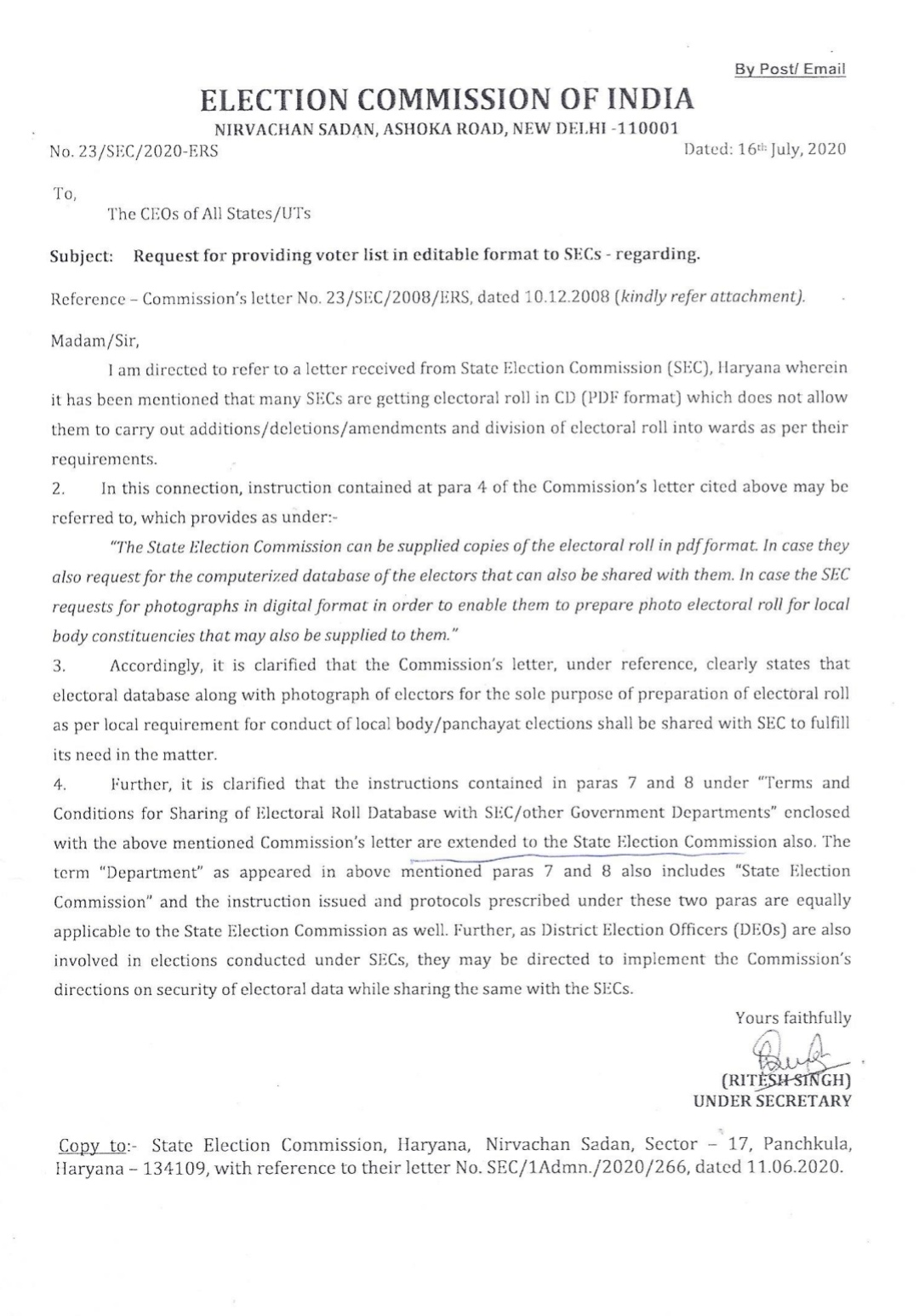New Delhi: Election Commission of India(ECI) has clarified that it does not unlawfully share Electoral Roll(ER) database with any agency or organisation but there are set of guidelines to share (if required) with State Election Commissions and other departments.
Journalist turned RTI activist Saket Gokhale had alleged that Election Commission unlawfully shared photos and addresses of residents of North East Delhi after the violence in February 2020.
Allegations by Saket Gokhale
In a series of tweets, Saket Gokhale had alleged that ECI has sidelined its own rules and shared details of all residents of North East Delhi with police to enable identification of people after February 2020 violence.

He shared document signed by Under Secretary and claimed that order admits that voter list shared with Police cannot contain photos but ECI broke these rules and made voter list with photos available to Delhi Police.
Gokhale raised objections over this order and questioned Election Commission of India's spokesperson for clarification and asked if the voter list with photos are being shared in other places too for building a facial recognition database.
Gokhale also claimed that Muslims innocent men were picked up by police.
Clarification by ECI
As per election commission's guidelines issued in December 2008 and clarificatory orders issued in July 2020, there are certain terms and conditions under which Electoral roll database can be shared with State Election Commission or other Govt departments.

In its statement issued on Monday, Election Commission clarified that it has "not in any way deviated from the original guidelines of 2008 and clarificatory orders of 2020 in any manner."
Though, Commission did not refer to Gokhale in its statement but said," As far as criminal investigations by regulatory departments/enforcement agencies are concerned, it is under their own extant Acts, Rules and guidelines, which in any case can be challenged in the Hon’ble Courts of law."

As per guidelines issued in December 2008, the electoral roll database can be provided to the department only for the purpose requested.
Also, it says that if other Govt departments require a database with photographs of electors, special permission of EC will be required due to privacy concerns.

Guidelines also mentioned that it has to be ensured that database with or without photographs of electors shall not be passed to any other organisation or agency and the full security of database should be ensured by the department.
As per guidelines, the Chief Electoral Officer is also required to take "Undertaking" from the department before providing them with computerized data of electoral rolls in the custody of CEO/DEO.

ECI also clarified that "It is only when the Model Code of Conduct is enforced that Election Commission invariably takes note of any such event(s)/incident(s), which have the potential of disturbing and/or disrupting the smooth conduct of electoral process and ECI does not interfere in the day to day functioning of the regulatory departments/enforcement agencies."
However, if any political entity/individual brings to the notice of the Commission any particular instance which has the potential of the disturbing electoral process, the Commission has the well-established mechanism of seeking inputs from the CEOs, General Observers, Police Observers and Expenditure Observers during this time and necessary action is taken as per the reports of these functionaries, it added.
More than 50 people lost lives in violence at North East areas of Delhi in February.
Gokhale claimed that ECI gave nod to share electoral roll database details with Delhi Police.
Earlier, in July 2020 he alleged that the Chief Election Officer of Maharashtra hired BJP leader's firm during 2019 assembly polls.
Election Commission of India's spokesperson Sheyphali Sharan responded to Gokhale's tweets and said that the EC has sought a detailed report from Chief Election Officer of Maharashtra.



